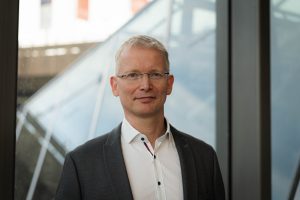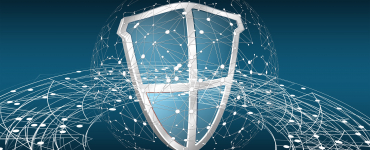In this interview, Tim Cappelmann, Managing Director of AirITSystems GmbH, explains what digitalisation really means today – and why it can only succeed with a stable security foundation. He also discusses the need for resilience in digital processes, the challenges posed by technological silos and the skills shortage, and the role of IT as a strategic enabler within companies.
Which aspects of digitalisation are particularly important to AirITSystems?
We believe that all digitalisation must rest on a solid security foundation. Risks must be actively managed, protective measures implemented – and contingency plans prepared. In this context, we speak of “resilience”, because in the event of serious disruptions or disasters, digitalised processes must be able to function in analogue mode during emergencies or be quickly migrated to alternative platforms. Digitalisation must not be driven by insecure IT and thus left to chance.
What are the particular challenges currently facing your industry, and how are you addressing them?
In IT, different managers and experts with different perspectives have to work together. Ideally, management, governance and technology work closely together. The days of long-established technical silos in IT are over, but there is a lack of translators and coordinators. That's why we recently launched a platform on LinkedIn: SEC360°. Here, we take an editorial approach to highlighting technological trends, regulatory requirements, current risks and much more – but always from all three perspectives of IT. It becomes clear that only the interaction between all areas of expertise leads to good results. Everyone from the IT community is invited to join the discussion on this LinkedIn channel and contribute their insights. If you prefer email to LinkedIn, we send out a monthly newsletter with in-depth articles on specific topics.
How do you expect your membership in the eco Association to support you in this?
The eco Association is also committed to networking – it offers great formats and platforms for exchanging experiences and collaboration. It's not about sending your own messages, but about “learning from each other”. At AirITSystems, we are particularly involved in the Security Competence Group – that is our DNA.
Which digital technologies will play the biggest role in your industry in the coming years?
Our own resilience and cybersecurity budgets continue to grow. We hope that these budgets will also be used for awareness measures for users, because every measure taken here is a good investment. Technologically, it's about combating system failures and networking the many disciplines of cybersecurity with powerful ecosystems. Of course, cloud services will be integrated into companies' and organisations' own IT service catalogues. However, technological debt has accumulated in the area of connected security, and this needs to be reduced as a matter of urgency. The serious skills shortage in our industry is accelerating the necessary consolidation of the many unmanaged isolated solutions.
What opportunities does digitalisation offer us in the future?
On the one hand, we will achieve greater added value through efficiency gains; on the other hand, digitalisation is already creating new business models today. This goes hand in hand with a change in the role of IT departments – from an opaque engine room to a genuine business enabler. Many management teams are already asking themselves: is the CIO on the top board of an organisation, or does he or she continue to report to the CFO as a cost centre? The organisational structure should also correctly reflect the potential role of an IT department. In future, IT managers will no longer be chief mechanics, but business people on an equal footing.




